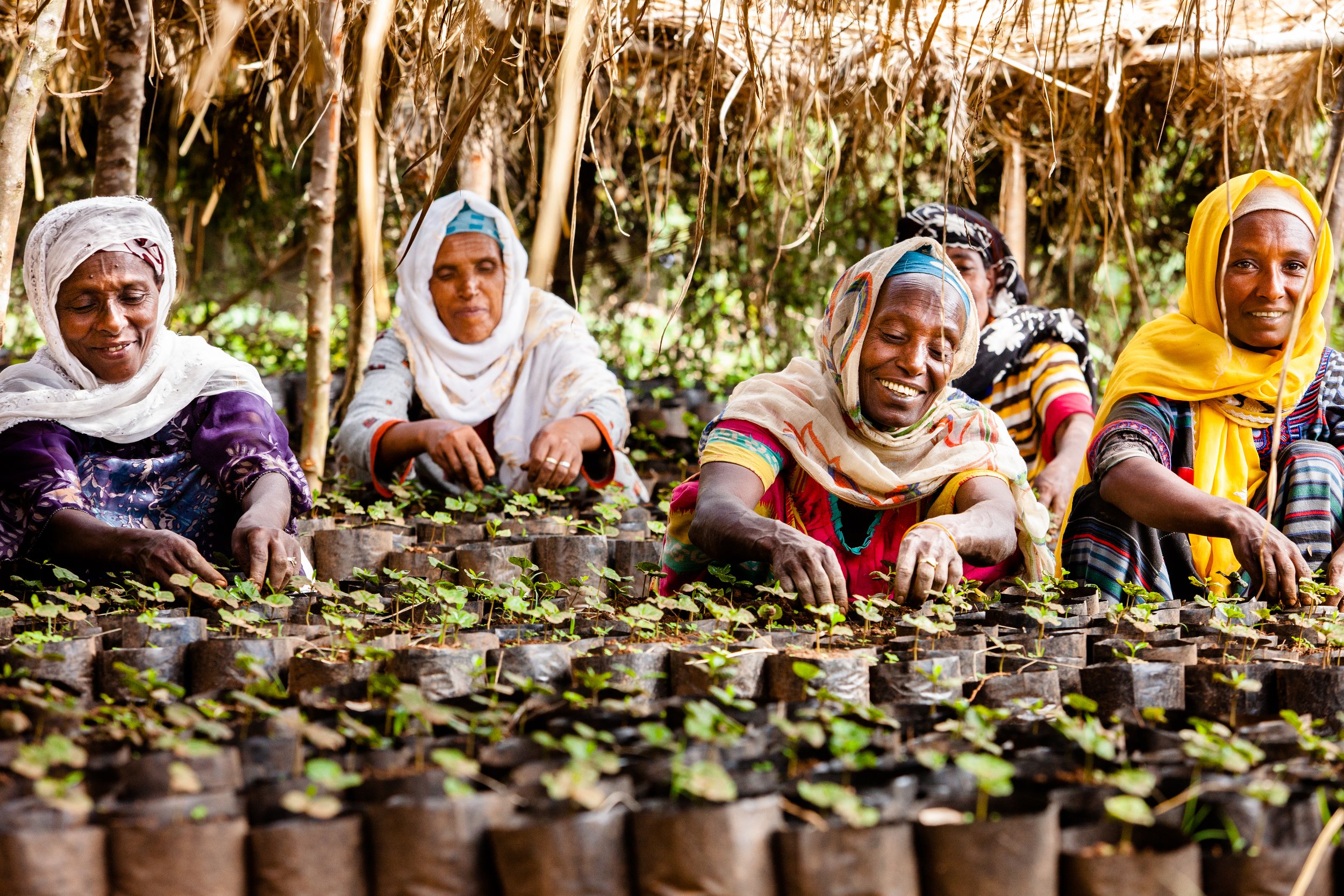Policy LINK Event Explores Locally Led Policy System Transformation
April 20, 2023 – How do we empower local actors to play a role in strengthening their own policy systems?
This question was at the heart of a Policy LINK learning event, “Locally Led Policy Systems Transformation: Lessons from Policy LINK Approaches,” held on April 18, 2023. Hosted by USAID’s Local Systems Community, the virtual event highlighted Policy LINK’s programming approaches and experiences in Bangladesh, Ethiopia, and Ghana, as well as at the continental level in Africa. More than 50 people from USAID and the broader policy community attended.
After opening remarks from USAID, Policy LINK Regional Director Robert Ouma introduced the project. Mr. Ouma began by noting that, unlike projects that focus on specific policies, Policy LINK strengthens the leadership capacity of public, private, and civil society actors and fosters collective action among them to transform policy systems. He also described the project’s core approaches: engaging local actors, building leadership capacity, encouraging collective action, and facilitating locally-led adaptive learning.
Policy LINK will continue to explore these issues—and the many questions and comments raised by event participants—in a series of learning events planned over the coming months.
Next, a rich panel discussion brought these approaches to life. The panel featured Policy LINK staff working in partnership with USAID Missions in Bangladesh, Ethiopia, and Ghana as well as with the USAID Bureau for Resilience and Food Security, which supports the project’s work with the Comprehensive Africa Agricultural Development Programme, or CAADP. Also featured on the panel were policy system actors from Ghana and Ethiopia.
Edwin Odhiambo, who manages Policy LINK’s support to the African Union for CAADP, stressed the importance of building trust and strong relations with project counterparts. He noted that the trust Policy LINK has built with the African Union over many years has enabled the project to help make CAADP processes more inclusive and collaborative.
Yunus Abdulai, who leads Policy LINK’s Ghana buy-in, noted the importance of engaging subnational actors in policy processes. He cited Policy LINK’s climate change assessment approach, which engaged subnational stakeholders, including farmers, who are often marginalized in policy discussions. Ghanaian farmer Rosemond Afful, who participated in the climate change assessment, appreciated this approach. She noted that while farmers both contribute to and suffer the impacts of climate change, they are often left out of policy discussions. Their voices are critical to these discussions, and they are eager to play a bigger role in developing climate change solutions.
Other Policy LINK staff discussed how the project’s facilitative approach helped them navigate political tensions and fractious debate among policy system actors.
Dr. Belay Demissie, Policy LINK’s Ethiopia country lead, said that establishing a multi-stakeholder advisory group had helped his team’s activity navigate political sensitivities, productively engage the Ethiopian government, and build support for the activity.
Faheem Khan, Policy LINK’s Bangladesh country lead, framed his team’s work as “building a movement.” He described how the activity methodically facilitated policy discussions in the seed sector, starting with sub-national discussions, before moving to the national and eventually the executive level. To prepare for multi-stakeholder discussions, Policy LINK worked with policy system stakeholders individually as well, filling information gaps and correcting misunderstandings that could have derailed multi-party policy dialogue. Thanks in part to Policy LINK’s efforts, key seed sector players recently agreed on 10 recommendations for the sector that will be shared with the Ministry of Agriculture—a “watershed” moment, according to Mr. Khan.
Policy LINK will continue to explore these issues—and the many questions and comments raised by event participants—in a series of learning events planned over the coming months. In the meantime, to learn more about these examples, please see Policy LINK’s recent paper, “Locally Led Policy Systems Transformation: Lessons from Policy LINK Approaches.”
Resources
Read the Policy LINK paper on Agrilinks.

